Howa XL Lite Chassis Rifle
Shooting a New .223 Remington
feature By: Patrick Meitin | January, 21
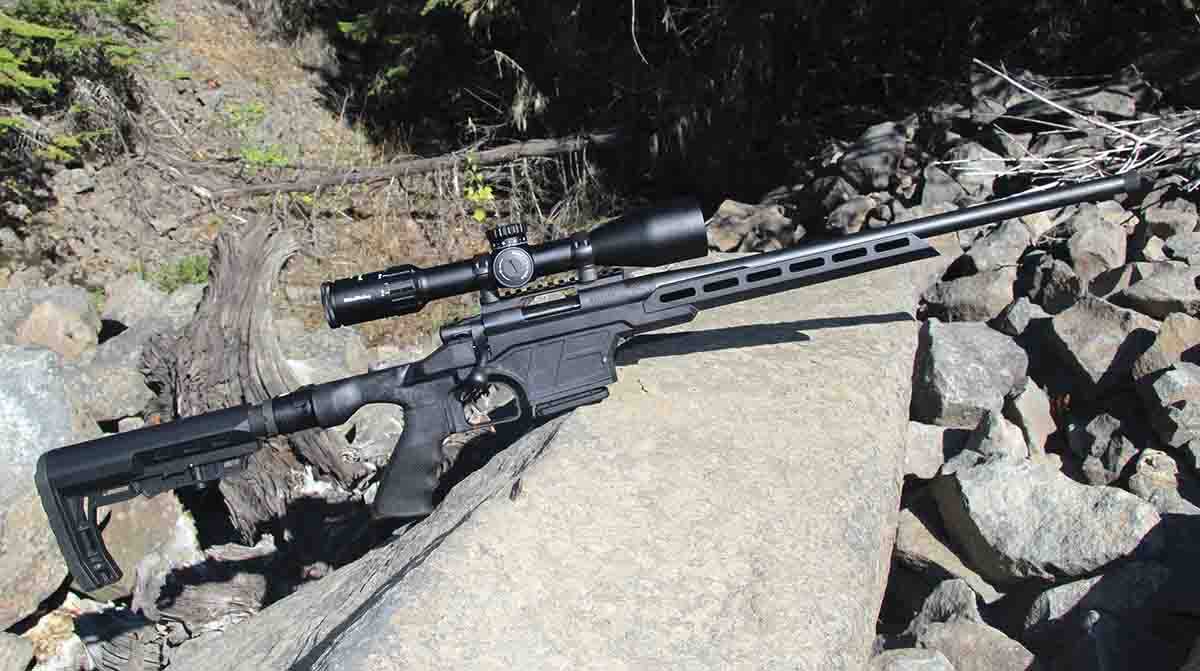
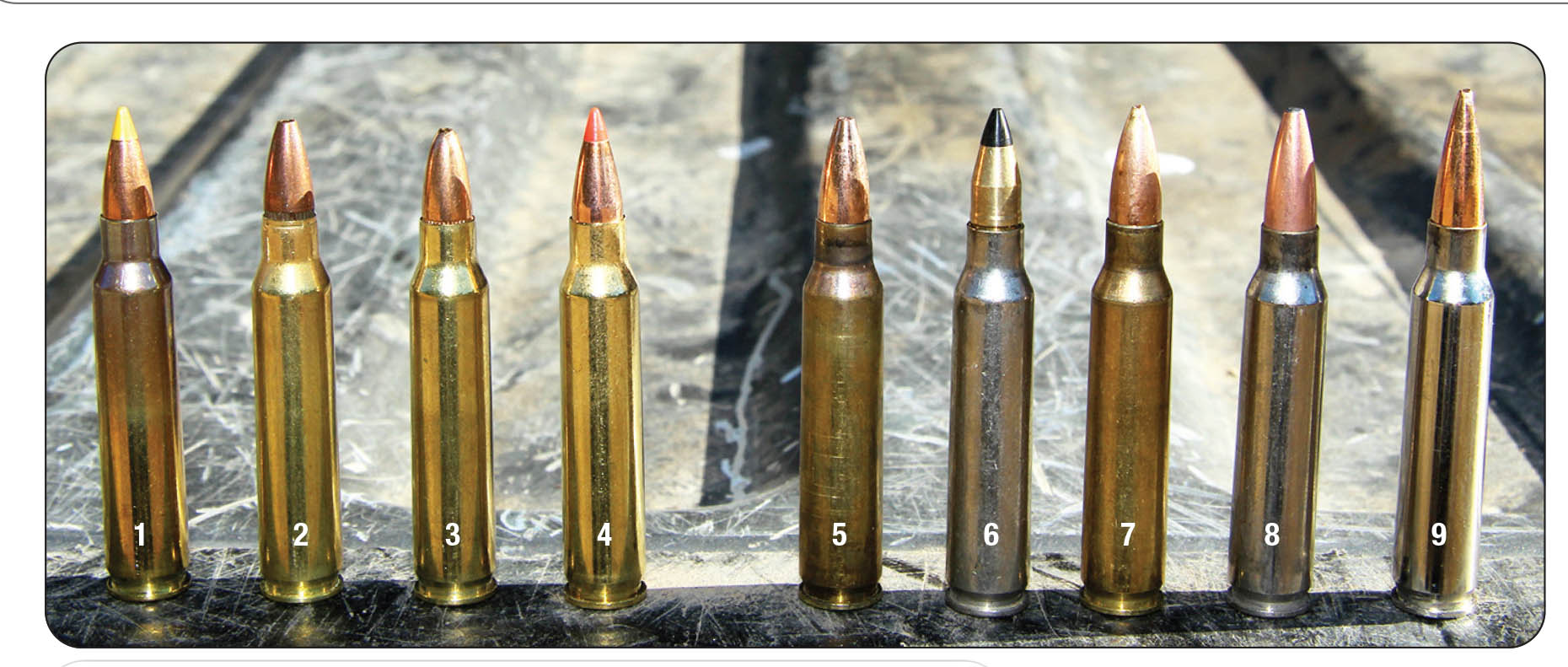
Japan’s adoption of strict industrial quality control following World War II and a culture steeped in meticulous craftsmanship, means every aspect of Howa rifles are carefully designed, machined and fitted to exacting tolerances. Howa’s advanced technical features include cold hammer-forged barrels constructed from pre-hardened steel, and innovations such as the HACT Trigger featuring a light, creep-free trigger pull with consistent let off, a three-position safety that allows unloading the rifle while on “safe” and machined receivers and forged bolts.
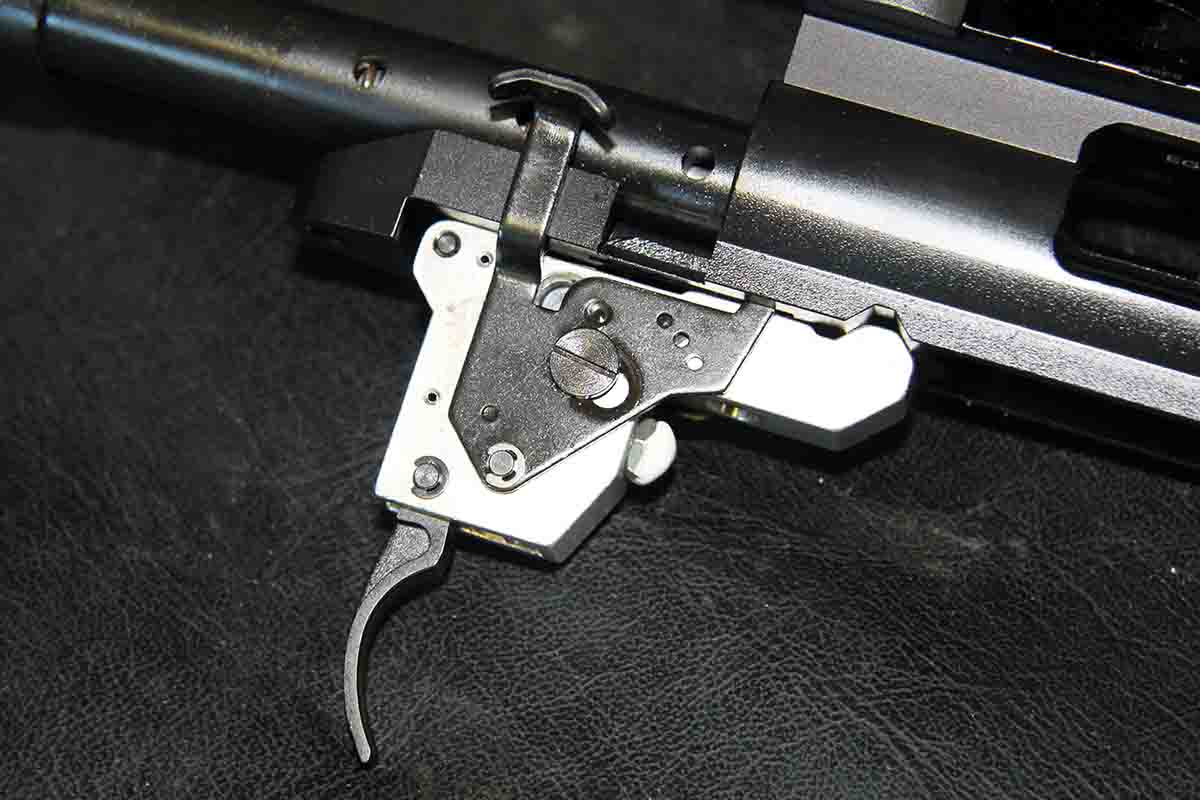
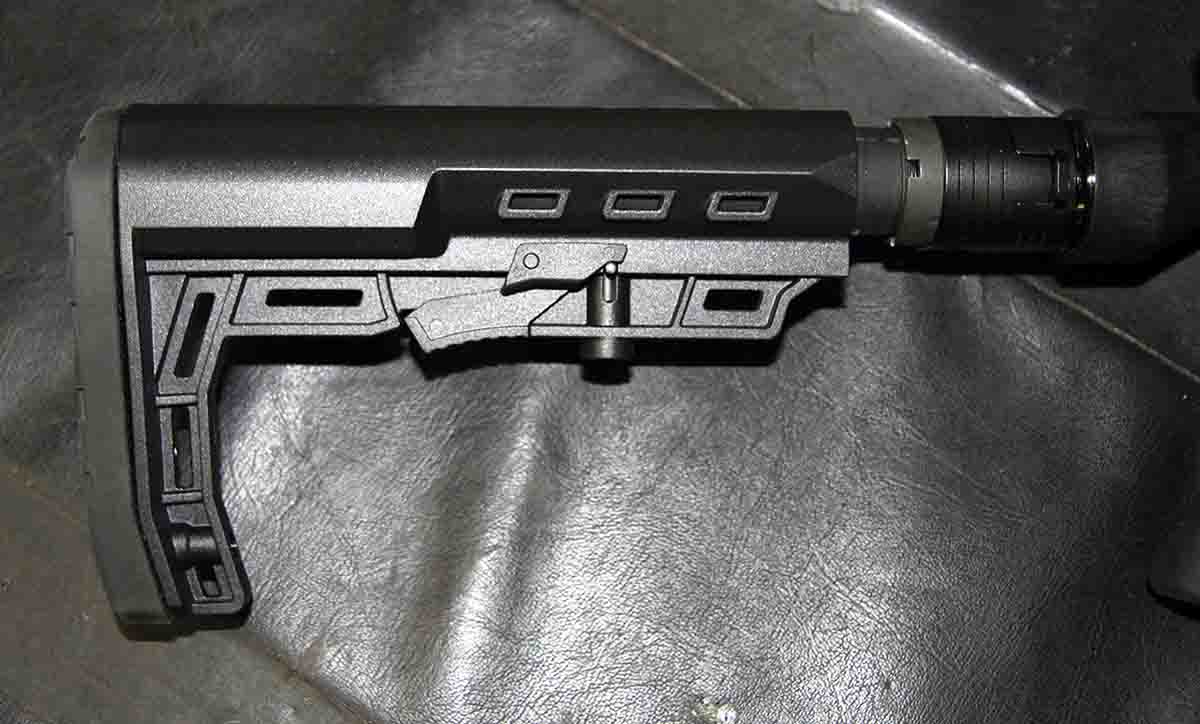
Howa’s XL Lite Chassis .223 Remington is built around a M1500 Mini Action held in a EXCL Lite Chassis stock. The glass-filled polymer stock makes for a lightweight package, weighing 7.5 pounds out of the box. It features a LUTH-AR click-adjustable buttstock and a Citadel Folding Chassis Adaptor. The Mil-spec adaptor is made to Mil-specs from anodized aluminum and allows placing the rifle in a more compact case for travel or storage.
Rounds are fed from an AR-style, polymer 10-round magazine. The rifle is also chambered in 6.5 Grendel, 7.62x39mm and .350 Legend (16.25-inch barrel). The .223 Remington’s 20-inch barrel includes a 1:8 twist and is threaded for a brake/suppressor. The straight-taper barrel measures .755 inch just behind the thread protector. Howa calls it a light-heavy contour. It is well suited to the .223 Remington cartridge.
.jpg)
The EXCL Lite Chassis stock is molded from glass-filled polymer, including an integral trigger guard, detachable magazine well and extended forearm. The generously-vented forearm is fairly flexible, but the barrel is floated with .25-inch side and .625-inch bottom gaps, so the likelihood of the barrel making contact is slim. The forearm slots are M-LOK compatible, allowing the addition of aftermarket bipods or picatinny rails. The polymer chassis lends the rifle its easy carry weight. The adjustable buttstock includes five click-in stops and is controlled by a standard AR-style, spring-loaded underlever. Rifles can be ordered with American Flag graphics, KRATOS Camouflage, olive drab or black (as tested). The detachable magazine clicked in and out of the magazine well smoothly and positively, with the spring-loaded release catch located in front of the magazine offering trouble-free use. The stock includes aluminum pillars front and rear. No provisions are offered to attach a shoulder sling, but the M-LOK slots offer solutions.
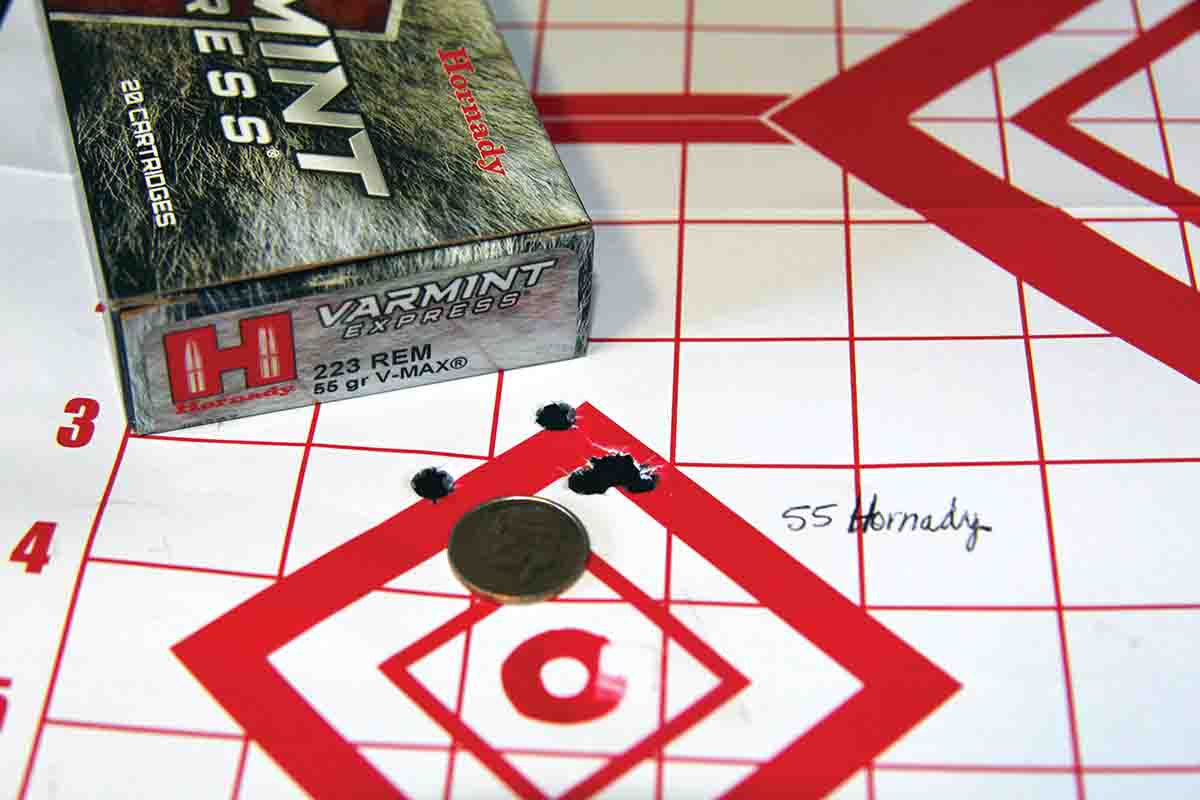
The bolt is cocked on the downward stroke, and de-cocked when opened. A silver knob at the rear of the bolt shroud is visible when cocked, and pulled inside the shroud when de-cocked or fired, so it is easy to see if the rifle is “hot” at a glance. The bolt includes an integral handle, AR-style extractor and ejector and is outfitted with pressure release ports.
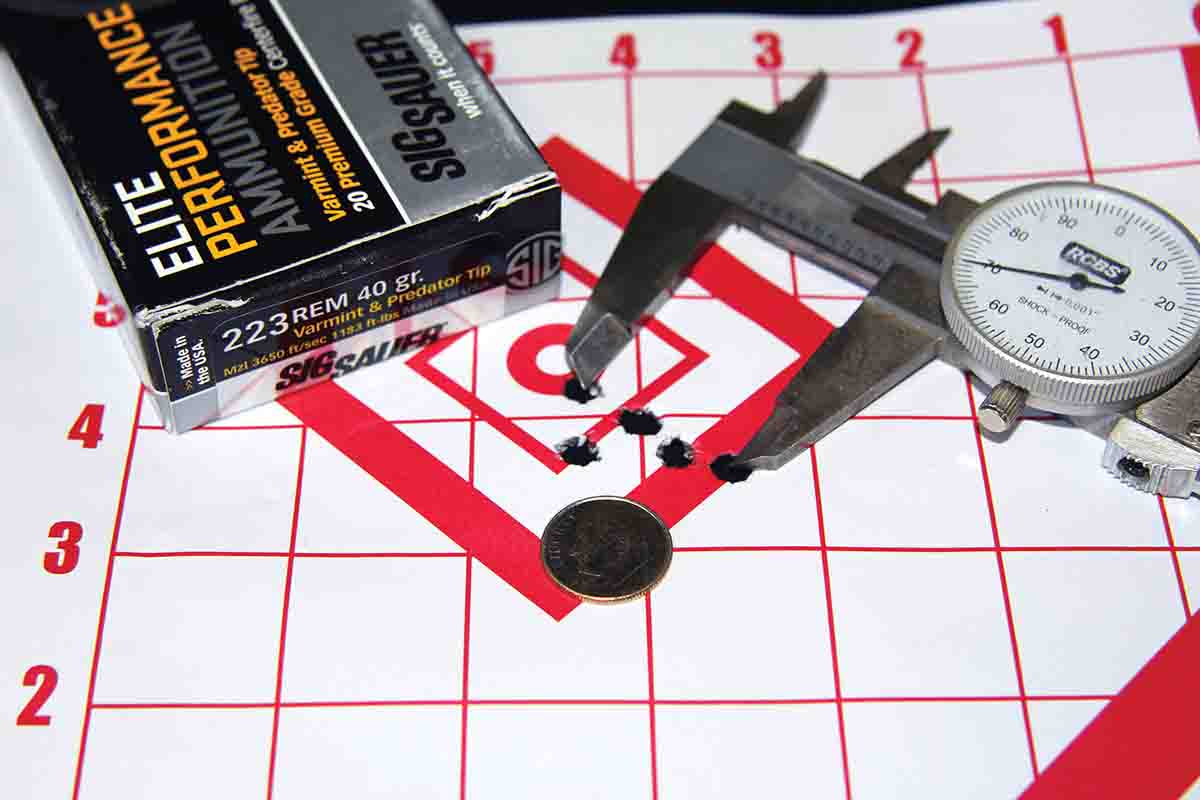
Howa’s HACT trigger is a two-stage system. About .1875 inch of slack is taken up before engaging the sear. The trigger pull is then ultra-crisp with minimal overtravel after firing. The trigger broke at a touch less than 3 pounds out of the box. HACT triggers are technically user adjustable, though doing so will void the warranty, and I found the 2.85-pound factory setting satisfactory. A glob of white silicone seals the trigger adjustment screw and tells the manufacturer if the trigger has been tampered with. A bolt-release tab is located opposite the safety.
The test rifle arrived set up with a scope and mounting hardware, including a EGW 20 MOA picatinny rail, Diamond Steel 30mm medium rings and a Nikko Stirling 30mm Diamond LR 4-16x 50mm scope. The scope includes exposed locking turrets with positive .25 MOA adjustments and side parallax adjustment/focus with a stacked illumination knob. The illumination system powers off between intensity settings. The reticle was a super-fine mil-dot arrangement.
Shooting was conducted on a cold early morning to beat the high winds that had been whipping up by 10:00 A.M. I’d meant to shoot with one of my suppressors installed, but forgot to grab one out of the gun safe before heading to the range. This also meant the factory loads, shot first, were triggered with cold fingers. The handloads were shot after the sun had established itself to lend some warmth. A variety of loads were run through the XL Lite Chassis to test Howa’s MOA guaranty – though I would be shooting five-shot groups from 100 yards instead of the three-shot groups that are part of that promise.
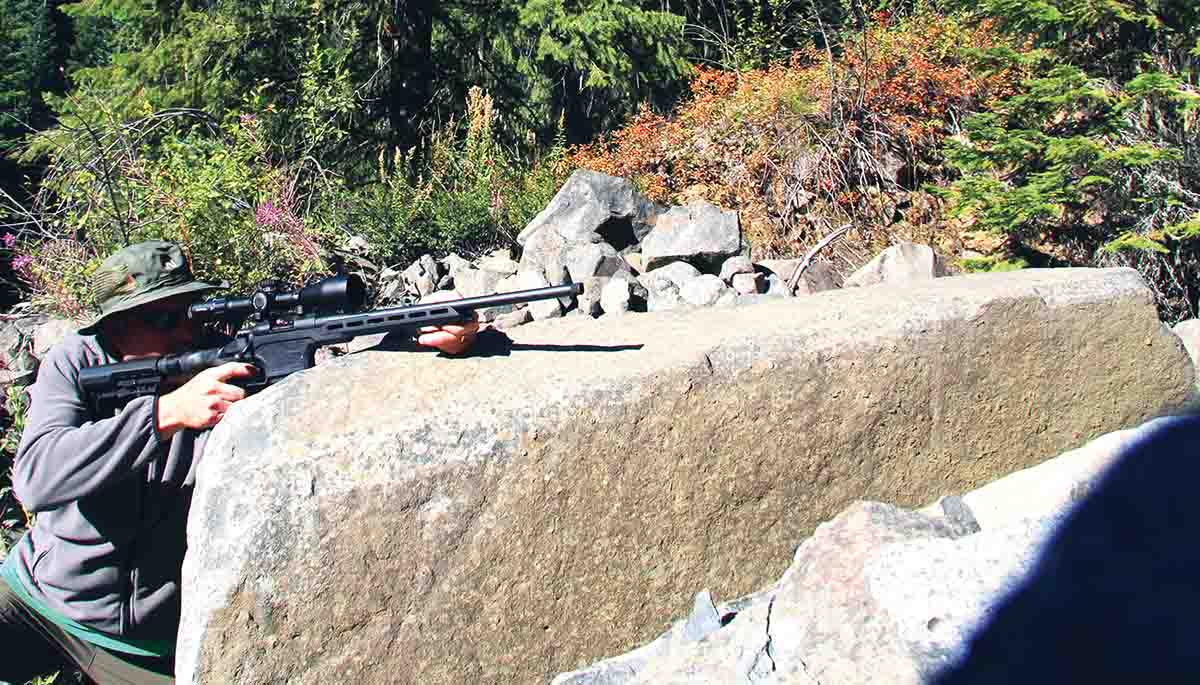
Factory ammunition included SIG SAUER’S 40-grain Varmint & Predator Tip pushed to a stated 3,650 feet per second (fps), budget-priced Remington UMC 45-grain JHP and American Eagle 50-grain Varmint-Predator JHP (the latter at a stated 3,325 fps) and Hornady 55-grain Varmint Express V-MAX at a stated 3,240 fps. Of these, the SIG SAUER and Hornady product met Howa’s guaranty parameters and did live up to the MOA guarantee, even with five-shot groups. They also printed nice round clusters. Budget-priced Remington UMC and American Eagle ammunition strung vertically, despite low extreme velocity spreads. Groups didn’t start tight and open up with fourth and fifth shots as the barrel warmed, but were spread randomly from the first to last shots. Velocities fell short of stated numbers, which is not surprising given the 20-inch barrel. (Factory velocities were likely established with 24- or 26-inch barrels.)
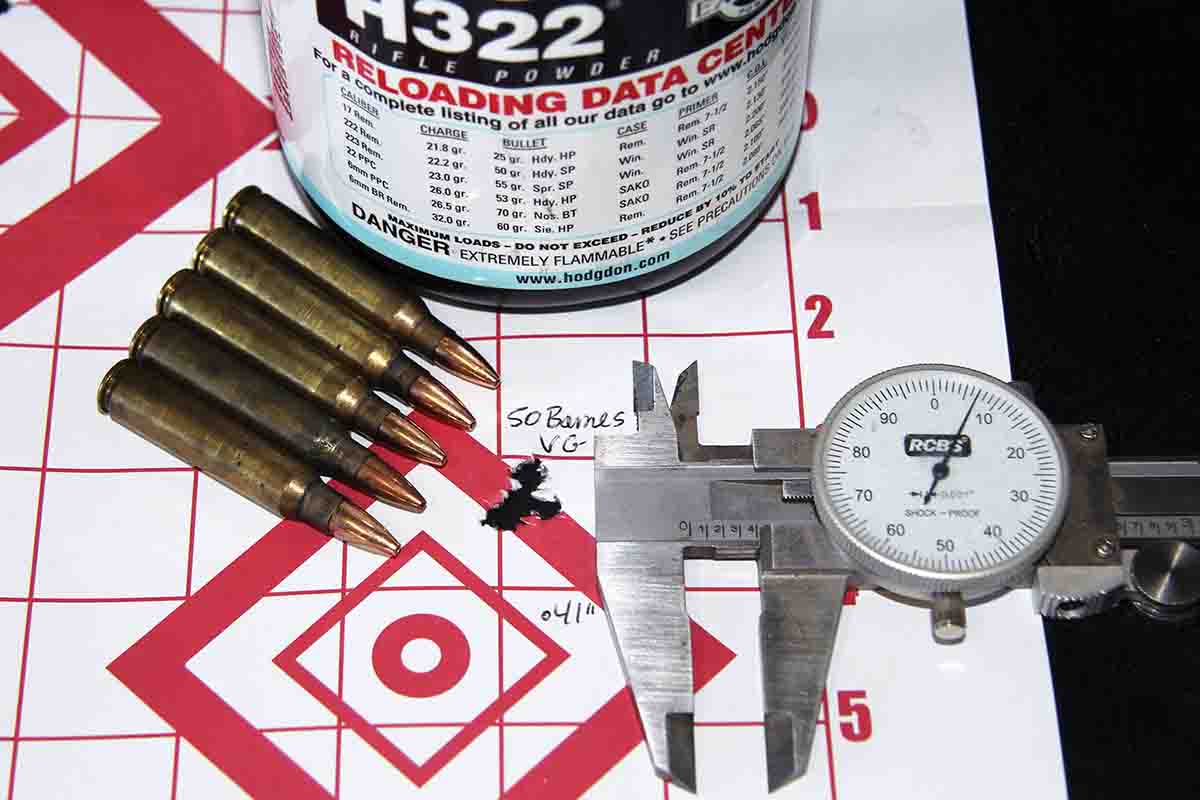
A compressed load of 25.5 grains of Vihtavuori N140 beneath Rocky Mountain Reloading 69-grain 3-Gun Hunter BTHPs in PMC cases and sparked by Federal Premium’s Gold Metal 205 Match primers proved disappointing from the Howa. This load managed only 1.28 inches from the Howa, surprising only because it typically prints sub-half-inch groups from the Remington VTR (1:9 twist). These rounds did seem to chamber a touch tightly, indicating the Howa includes limited freebore. The Speer 75-grain Gold Dot, seated over a 25.5-grain load of Alliant Power Pro 2000-MR in Federal nickel-plated brass with a CCI 400 primer, are leftovers from a Texas hog hunt. Groups with this load shot just under an inch from the Howa. Finally, Berger’s 90-grain VLD Target over 21.5 grains of Hodgdon Varget in Browning nickel-plated brass using a Remington 7½ primer was another AR leftover. They require single feeding, chambering effortlessly but exceeding the 2.26-inch AR magazine limit, at 2.34 inches. I added this load only to see how they would fair in the 1:8 twist barrel. They punched round holes and grouped into 1.27 inches, so I’d say the 1:8 twist was sufficient.
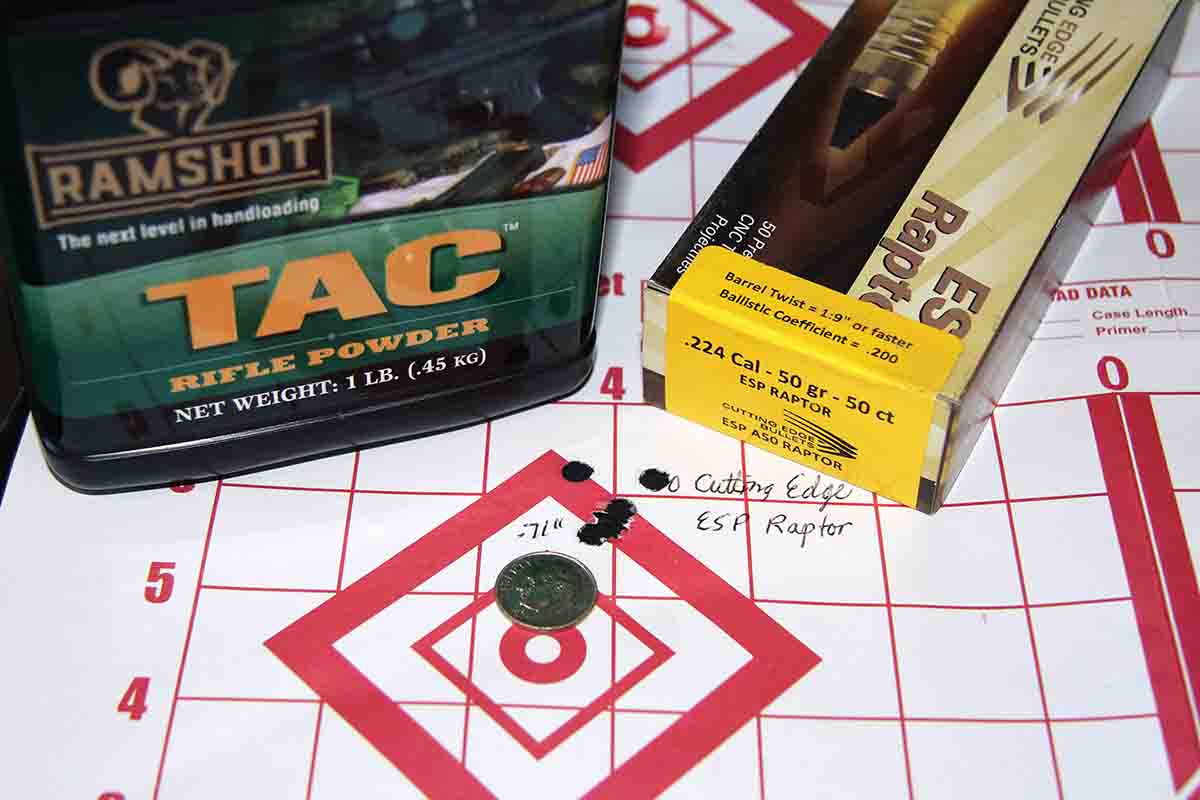
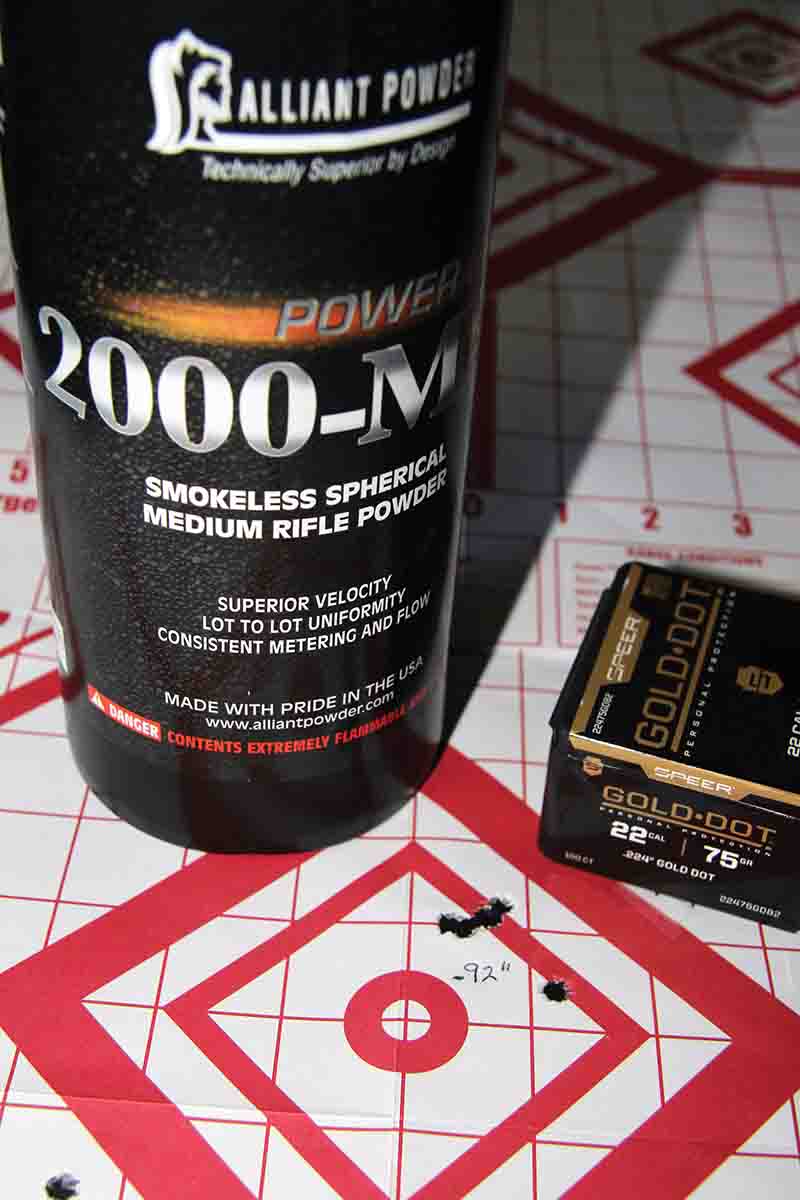
The rifle picked up and fed every round slickly, factory and handloads, as long as I remembered to aggressively pull the bolt fully rearward. Otherwise it occasionally came up short. The bolt began to smooth out with use and I’d wager this issue would also work itself out with additional break-in. I also found that the magazine seated most reliably with its base tilted toward the butt slightly during the final snap-in.
The heavy barrel was slow to warm, a plus during high-volume shooting. From a cold start, I could shoot 15 rounds before I needed to lay off, and it certainly could have been shot hotter. Recoil, such as it was, resulted in a straight pushback without any lift or twisting witnessed in some varmint rifles of this weight class. One of my light sporters in .223 Remington, for instance, required a muzzle brake only because it had an annoying habit of lifting during recoil, making it difficult to spot impacts while varmint shooting.
Overall, Howa’s XL Lite Chassis fills a viable niche – an accurate rifle that won’t break your back or your budget.


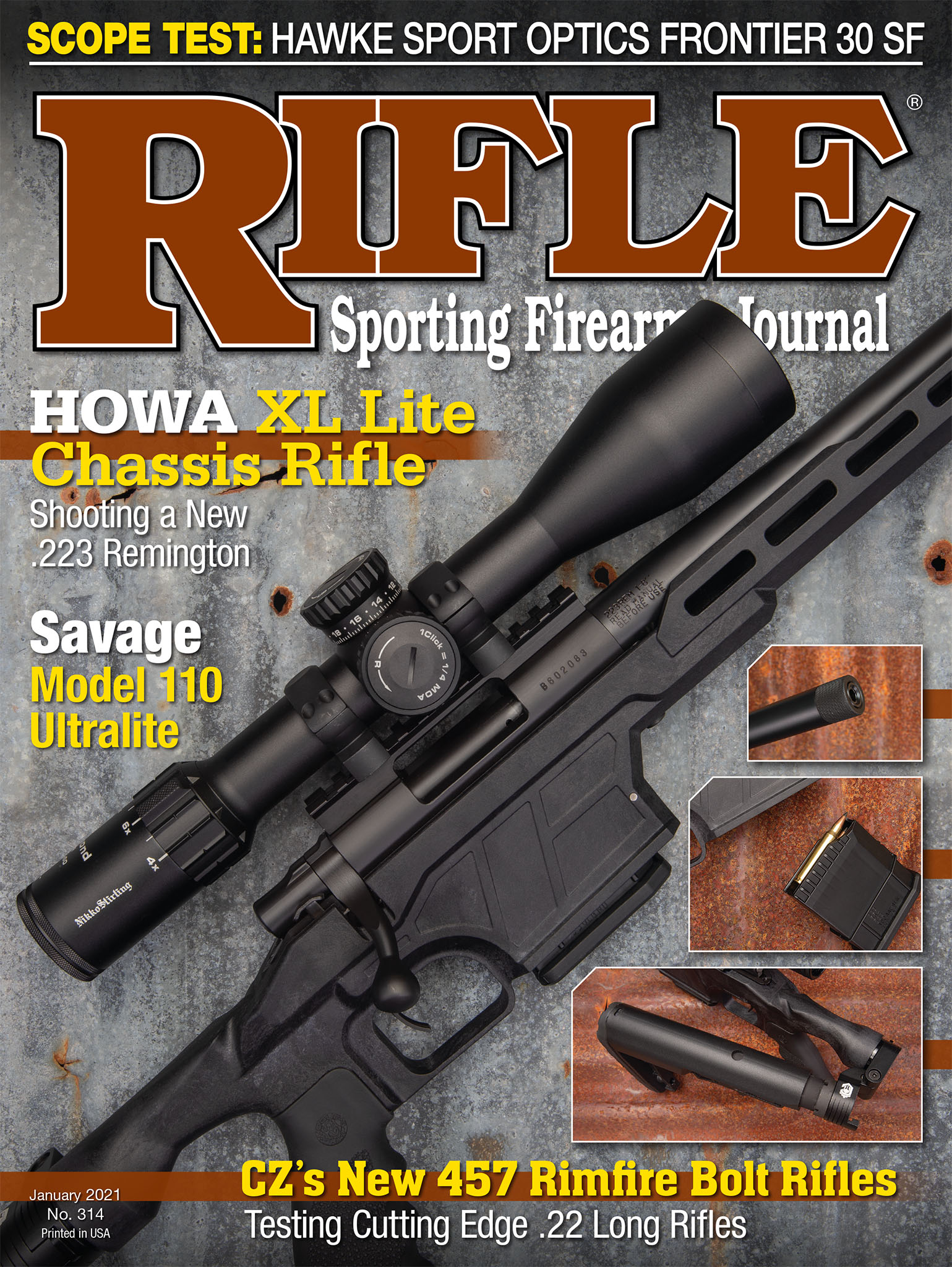
.jpg)